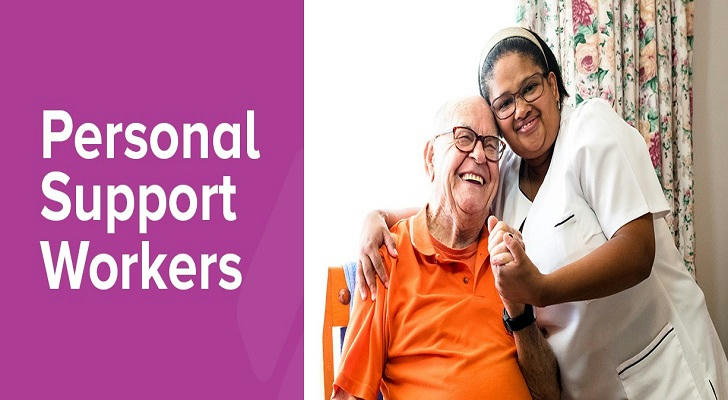The Best Vocational Courses for Immigrants and Career Changers
Starting a new career or building a life in a new country can be both exciting and overwhelming. For many immigrants and career changers, vocational training offers a fast and reliable path toward employment, stability, and upward mobility. These practical, skills-focused programs are designed to equip learners with industry-specific knowledge and certifications that lead directly to jobs.
Whether you’re transitioning careers due to economic changes or beginning a new chapter in a different country, here are some of the best vocational training programs to consider in 2025—especially in sectors that are welcoming to newcomers and offer strong demand.

Caregiving and Personal Support Worker (PSW) Training
With an aging population in countries like Canada, the U.S., and Japan, the need for personal support workers and caregivers continues to grow. These roles are ideal for immigrants and mid-career individuals who are compassionate, patient, and ready to work in a meaningful field.
Typical course length: 3 to 6 months Requirements: Basic language skills, background check Employment settings: Nursing homes, home care agencies, hospitals Salary range: $16 to $25 per hour, with full-time opportunities and benefits
Many programs offer government-funded tuition, paid practicums, and pathways to permanent residency for foreign workers. Courses usually include training in hygiene, mobility assistance, nutrition, communication, and basic health monitoring.
Commercial Driver’s License (CDL) and Truck Driving Courses
Transportation is the backbone of the economy, and there is an ongoing shortage of qualified truck and delivery drivers. Vocational programs help learners obtain the necessary licenses to operate commercial vehicles, including long-haul trucks, school buses, and delivery vans.
Typical course length: 4 to 8 weeks Requirements: Valid driver’s license, legal work status Licenses earned: CDL Class A or B (depending on the country) Salary range: $45,000 to $80,000 annually, depending on route and company
This field is especially appealing for those who prefer independent work and are comfortable spending time on the road. Some employers offer signing bonuses, paid training, and relocation support.
Hospitality and Culinary Arts
For those with a passion for service, cooking, or working with people, hospitality programs can open doors to careers in hotels, restaurants, and tourism businesses. These programs are highly accessible and often do not require previous experience or advanced language skills.
Popular programs:
- Food handler certification
- Barista and café service training
- Hotel front desk operations
- Culinary arts diploma
Typical course length: 2 to 6 months Salary range: $15 to $30 per hour depending on the role and location
Many schools offer placement assistance and internships at local restaurants and hotels. International students and newcomers often use these programs as stepping stones toward broader work opportunities.
Early Childhood Education Assistant
If you enjoy working with children and want to help families in your community, becoming an early childhood education assistant (ECEA) is a great option. These programs are especially popular among women immigrants and career changers seeking family-friendly hours.
Typical course length: 6 months to 1 year Certification: Varies by region (ECEA, Child Development Assistant, etc.) Workplaces: Daycares, preschools, after-school programs Salary range: $18 to $28 per hour
Training covers child development, safety procedures, activity planning, and communication with parents. Many governments subsidize these programs due to labor shortages in the sector.
Medical Office Assistant and Medical Coding
For those looking to work in the healthcare field without direct patient care, training as a medical office assistant or medical coder can lead to stable, well-paying administrative roles. These positions are common in clinics, hospitals, and insurance companies.
Typical course length: 4 to 9 months Skills taught: Scheduling, medical terminology, billing systems, privacy laws Salary range: $18 to $30 per hour
Medical coding in particular is in high demand due to the rise in telehealth and digitized health records. Many programs offer remote or hybrid learning, making them accessible to working parents or those with mobility limitations.
Language and Job Readiness Support
In addition to technical skills, many vocational schools offer language training and employment preparation services. These include:
- Resume writing workshops
- Interview coaching
- Workplace English or French
- Job placement assistance
These support services are crucial for newcomers who may be unfamiliar with the local labor market or workplace culture.

Government and Community Support
In 2025, many countries have increased funding for skills training, particularly for immigrants, refugees, and displaced workers. Programs are often eligible for:
- Tuition grants and subsidies
- Paid internships or apprenticeships
- Childcare and transportation assistance
- Fast-track immigration or permanent residency programs for essential workers
Community colleges, settlement agencies, and workforce development centers are great starting points to explore these options.
Conclusion
Vocational training is one of the fastest and most practical ways for immigrants and career changers to enter the workforce. It offers focused education, real-world experience, and the chance to gain industry-recognized certifications without the long time or cost of a university degree.
By choosing the right program—whether in caregiving, transportation, hospitality, or healthcare—you can quickly build a stable, rewarding career that supports you and your family in a new country or new stage of life.
Your future doesn't have to wait. With the right training, it can start in just a few months.
